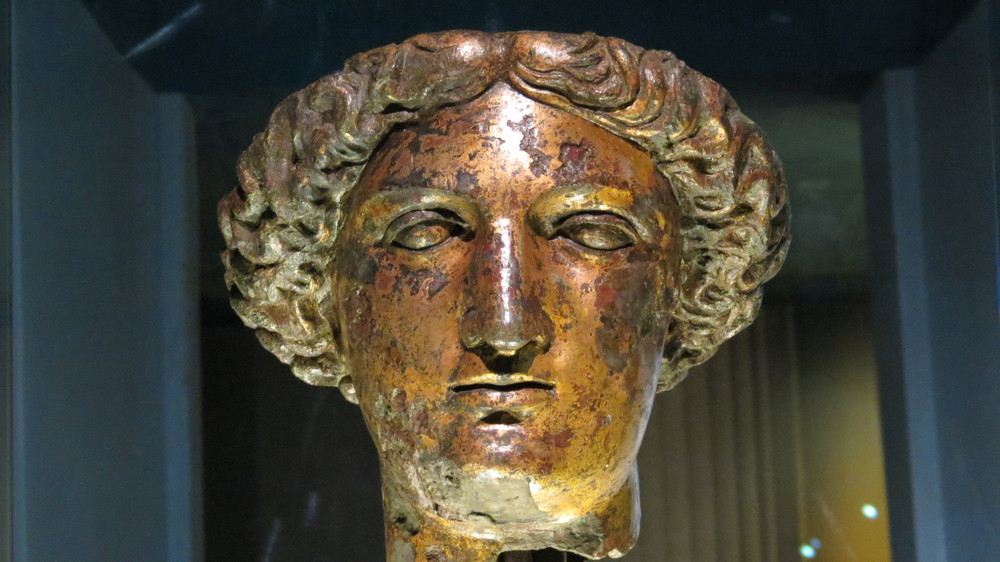A: Tell me about your parables. Why did you switch from short wisdom sayings to narrative parables as a method of teaching?
J: I switched because wisdom sayings are the easiest thing to pervert if you’re a leader. They’re a convenient source of mind control or brainwashing, if you will. A clever leader can always find a wisdom saying or a biblical law to back up his or her desired position. Such leaders know that regular people will feel guilty and ashamed if they believe they’ve broken an important moral law. Regular people back down quickly when they think they’ve broken moral codes, moral imperatives. That’s a good thing, by the way.
A: Explain who you mean by “regular people.”
J: Balanced individuals. Emotionally mature individuals. People who respect both themselves and the needs of the wider community. Compassionate people. People who reject libertarian values.
A: You once wrote some scathing comments about the Ten Commandments to show how even these supposedly unbreakable laws are interpreted differently by those who are in power and those who don’t have any power.
J: As many political revolutionaries over the centuries have pointed out.
A: And more recently, liberation theologians.
J: The problem with these short wisdom sayings is that they can be given any context that’s convenient. Interpreters of wisdom sayings can claim the sayings must be interpreted literally, if that suits their purpose. More commonly, interpreters claim the sayings are symbolic — filled with hidden esoteric meanings that only the most advanced religious initiates can fully understand. Needless to say, this leads to no end of abuse. If wisdom sayings can be moulded like putty to suit any need, then they have no meaning. There’s a reason that most major world religions are centred around only a few small books of sacred teachings plus vast libraries of commentary and interpretation that run into the thousands and millions of pages. Each new generation of theologians wants to prove how clever they are at “reinterpreting” or “revealing” the hidden message of the short sayings. It’s a cottage industry.

This rock sample on display at the Natural History Museum, London, UK is a perfect visual metaphor for the parables written and taught by Jesus. As you begin to study the parables, you’ll likely see them as a whole and durable stepping stone that combines traditional teachings such as moral obedience with new strands of thought such as forgiveness. Eventually, if you persist in your efforts to know God, the older themes of purity, piety, and perfection wash away and leave only the enduring networks of love, healing, and forgiveness in your heart. When Jesus’ parables start to “pop” like this for you, you know you’ve found the pathway of your own soul. Photo credit JAT 2024.
A: I noticed a while back that if you try to read the whole book of Sirach at one time (the apocryphal book of Wisdom of Jesus, Son of Sirach in the Oxford NRSV Bible) your head feels as if it’s going to explode.
J: That particular scroll was quite popular in Judea and Galilee at the time I was teaching.
A: The author of Sirach just goes on and on and on with endless lists of pithy little wisdom sayings. “Don’t do this.” “Don’t do that.” It’s impossible. Impossible to live up to. They ought to call this book “An Instruction Manual on How to Feel Guilty For Daring to Breathe.”
J: Yes. My mother was fond of quoting from it.
A: I can see how it would appeal to parents trying to govern their children with a firm moral hand. There’s something for every occasion.
J: Yes. Every time you got caught doing something wrong, you could count on getting a lecture, a beating, depending on the severity of the crime, and righteous repetitions of Sirach’s easy-to-remember moral laws.
A: They do stick in one’s head, don’t they? Sort of like “earworms” — those catchy but annoying songs we so often can’t get out of our heads.
J: One of my mother’s favourite moral imperatives was the importance of polite speech. The NRSV translates this favourite of hers as “Pleasant speech multiplies friends, and a gracious tongue multiplies courtesies (Sirach 6:5).” All my life I could hear her voice reciting that phrase whenever people around me started to get rude.
A: I think we all have memories of our parents’ favourite quotations. One of my father’s favourite sayings is, “When all else fails, read the instructions.” I think of this every time I get stuck on a task that would have been a lot easier if I’d read the directions before I started.
J: The problem with a book like Sirach — and it wasn’t the only book in my time to drone on and on about righteousness and obedience — is that it provides no guidance whatsoever, no practical advice at all on how to hear the inner wisdom of your own heart and soul. It’s a “top-down” list of laws, not a “bottom-up” search for meaning, life, purpose, and love. A computer could be programmed to follow all these laws, and would follow them successfully where they don’t contradict each other (as they often do.) But that’s not life. That’s not love. And it’s sure not divine wisdom. It’s just . . . obedience. Blind obedience. There’s no need to draw on your deepest reserves of courage and faith and devotion if all you’re doing is blindly following the laws. And there’s no need for forgiveness. There’s no room in there anywhere for insight. Insight — what writers in the past have called divine wisdom — is a complex blending, a complex interaction of positive emotions plus clear, logical thought plus mature, respectful behaviour. It’s holistic understanding. It’s something more than facts, more than knowledge. Insight is deeply intuitive while at the same time deeply objective. Insight is that hard-to-describe “aha!” moment when understanding suddenly “clicks.” Insight helps you feel more grounded, more connected to reality and to life, not less connected. Insight is the opposite of dissociation.
A: So you were trying to teach people how to find insight, not obedience.
J: Yes. And you can’t teach what insight is by reciting long lists of wisdom sayings. Insight involves the emotions of courage, trust, gratitude, and devotion, so if you’re going to give people practical tools for finding their own talent for insight, you have to speak to those emotions within them. You can’t just speak to the logical mind of the student. You have to speak to the whole of the student’s core self. You have to give them the opportunity to practise hearing. Really hearing. Hearing with their whole being, not just with their logical minds. You have to make them sweat a bit as they struggle to hear the meaning inside their own hearts. If they’re reading or listening to a parable using only the logic circuitry of their brains, they won’t understand the message of the parable. The message isn’t hidden. Nor is it intended to be hidden. But it is intended to make students stretch, to work their “heart” muscles as well as their “intellectual” muscles. It’s intended to encourage them to look at a difficult question from more than one angle. It’s intended to encourage honesty. A parable is meant to be painful, it’s intended to hurt. It doesn’t gloss over the painful truth. It highlights the painful truth, and asks the student to struggle with love and forgiveness despite the pain. That’s what a parable is meant to do.
A: It’s interesting that a person who’s dissociated from his or her core emotions will read your parables in very concrete, literal ways. They won’t get the emotional subtext at all.
J: That’s because they’re using their logic circuitry in unbalanced ways. They look at the “facts.” For them, it’s all they can see or hear. They assume that because there are facts and logic in the parables, the parables can be fully understood in purely logical terms. But they can’t. People get very angry, very hostile, when you tell them they’re being superficial in their reading of the parables. If they can’t feel loving emotions themselves, they want to deny that such emotions exist. They don’t want to admit to themselves or to anybody else that they’re mentally, emotionally, and spiritually imbalanced.
A: They don’t want to admit that they can’t love — that they don’t understand what love is.
J: Yes. And they’ll do everything in their power to avoid facing the issue.
A: Is their inability to love related in any way to their souls? Do they have defective souls that somehow missed out on the whole “love” thing when God was creating their souls?
J: No. Definitely not. Each and every soul in all of Creation knows how to love and forgive. Human beings can blame their upbringing and their own choices — combined in many cases with biological dysfunction in the central nervous system — for their inability to love as adults. People who’ve chosen to be dissociated from their loving emotions shouldn’t be proud of this choice.
A: Usually they have some pretty powerful excuses for their refusal to accept and heal their core emotions.
J: Nobody said it would be easy. That’s a point I tried to make again and again — the healing journey isn’t easy, but it’s worth it.
A: This morning I was rummaging through the Gospel of Thomas, and felt drawn to two parables on pages 68 and 69 of Stevan Davies’s book. When I read these two parables — sayings 63 and 64a in the Gospel of Thomas — I hear you talking about the excuses people make to avoid dealing with the pain of their emotions. I hear you talking about the fact that it’s easier for a “successful” person — a person obedient to logic and the law — than for an impoverished person out on the street to make excuses about sitting down at the table with God in a full relationship of love and trust. I hear you talking about the choices people make. The one thing I do not hear is the explanation that Stevan Davies offers for Saying 64a: “The point of the parable,” says Davies, “may be to hold up the host as an example of one who has failed to think things through (page 71).” To my way of thinking, Davies’s interpretation is logical, but way too literal, way too concrete. He doesn’t get this parable at all.

“Jesus said: Once there was a rich man who had lots of money, and he said, ‘I will invest my money so that I can sow, reap, plant, and fill up my silos with crops so that I won`t lack anything.’ So he thought, but that night he died. He who has ears, let him hear (Gospel of Thomas 63).” “Jesus said: A man entertained guests. When dinner was ready he sent a servant to invite his guests. The servant went to the first one and said, ‘My master invites you,’ but he replied, ‘I have to collect money from some merchants, and they are due to arrive this evening. Therefore I have to do business with them, and I must be excused from the dinner.’ The servant went to another said, ‘My master invites you,’ but he said, ‘I have just bought a house, and I have to spend a day there, so I cannot come. I must be excused.’ He went to the next and said, ‘My master invites you.’ This one replied, ‘My friend is about to be married, and I must organize the dinner. I can`t come. I must be excused.’ Again he went and said to another, ‘My master invites you.’ He replied, ‘I have just bought a village, and I have to go collect the rent. I can’t come and must be excused.’ The servant reported back to his master, ‘those whom you invited to the dinner are unable to come.’ The master said, ‘Go to the roads outside and invite anybody you can find to the dinner (Gospel of Thomas 64a, translated by Stevan Davies).”
J: John the Baptist hated my parables. He didn’t understand them, and got very frustrated when some of my students understood something that he — the chosen Messiah — couldn’t grasp.
A: There are no teaching parables in the Gospel of John.
J: He stopped accepting the legitimacy of my parables when he realized I was using them to teach a message that was for all intents and purposes the opposite of his own message. He was also envious and angry because he didn’t understand the emotional meaning interwoven with the logical one.
A: It’s clear enough that in Saying 64a you’re turning the imagery of the Essene Messianic Banquet on its head.
J: That part John understood. He and I were constantly sparring on that issue.
A: No Messianic Banquet for you? No bread and wine? No body and blood? No occult ritual for specially chosen initiates?
J (grinning broadly): Hey. God invites everybody — all people — to the table of divine love, divine trust, divine forgiveness, and so on. If you’re too busy to come . . . well, that’s your problem. Healing and empathy take time. Relationship with God takes time. You want to know what God’s love feels like? You gotta take the time.
A: Obedience and righteousness can’t replace the benefits of good old fashioned time spent with loved ones, time spent with God?
J: Nope.
A: Following all the wisdom sayings in Sirach can’t replace the benefits of time spent in love with God?
J: Nope.
A: Logic alone can’t lead you to God?
J: Nope.
A: So fear of God probably isn’t going to help much either, then?
J: The one thing you’ll never see in my parables is a man who fears God. You’ll see a lot of pain, a lot of grief, but you won’t see fear. In the Kingdom of the Heavens, the methods for dealing with the pain and the grief are forgiveness, honesty, compassion, healing, and equality. This is the feeling of redemption. Redemption is what you feel when you achieve the remarkable insight that forgiveness, not fear, not righteousness, is the only path to being in full relationship with God. Nobody can “give” you this insight from the outside. You have to find it within your own heart, mind, body, and soul. Other people can help you find it, can help you work towards it. However, nobody but you can give you the actual insight. It has to be up to you to accept God’s invitation to come to the table.
A: Where I assume blood and body aren’t on the menu.
J: The table of God’s love is filled with so many wonders, so many joys! Everything that God touches — not just the Eucharistic bread and wine — is filled with divine love. There’s no end to the mystery of redemption, the mystery of love and forgiveness.
A: That sounds suspiciously like a mushy Hallmark card.
J: Angels are incredibly mushy.
Posted in
building your intuition,
Davies (Stevan),
forgiveness,
Gospel of Thomas,
historical Jesus,
insight,
Jesus Redux,
Jesus' original writings,
John the Baptist,
parables,
Purity Piety Perfection,
redemption,
relationship with God and tagged
Kingdom teachings |
























